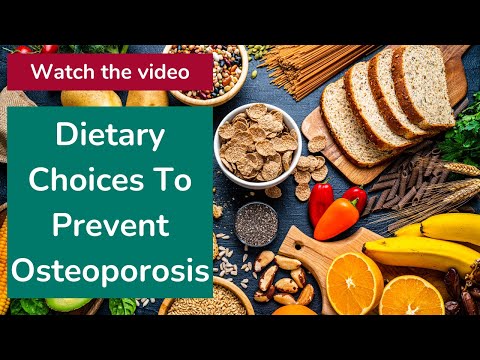Introduction
In the ever-evolving world of nutrition, fats have had their fair share of the spotlight. For years, fats were unfairly demonized as dietary villains, contributing to heart disease and weight gain. However, as our understanding of nutrition has evolved, so too has our perception of fats. We now recognize that not all fats are created equal, and making informed choices between healthy and unhealthy fats is essential for overall well-being. In this article, we embark on a journey to understand the distinction between healthy and unhealthy fats and how to make better dietary choices.
In the ever-evolving world of nutrition, fats have indeed undergone a remarkable transformation from dietary villains to dietary heroes. For years, they were unjustly demonized, blamed for a range of health issues, including heart disease and weight gain. However, the landscape of nutritional science has shifted significantly, leading to a more nuanced understanding of fats and their role in our health. Today, we stand at a crossroads where informed choices about the types of fats we consume are pivotal for our overall well-being. In this article, we embark on a journey to explore this transformation and understand the crucial distinction between healthy and unhealthy fats, equipping ourselves with the knowledge needed to make better dietary decisions.
The era of fat demonization, often referred to as the “low-fat craze,” spanned several decades. During this time, many people were led to believe that all fats were detrimental to health, leading them to opt for low-fat or fat-free food products. However, this approach failed to consider that not all fats are created equal. Fats are essential macronutrients, playing a crucial role in various bodily functions, including energy production, the absorption of fat-soluble vitamins, and the maintenance of cell membranes.
As research in nutrition advanced, it became evident that the blanket condemnation of fats was misguided. Scientists and health professionals began to distinguish between healthy fats and unhealthy fats. Healthy fats, such as those found in avocados, nuts, seeds, and fatty fish like salmon, were recognized for their beneficial effects on heart health, brain function, and overall well-being. These fats are rich in monounsaturated and polyunsaturated fats, including omega-3 and omega-6 fatty acids, which have anti-inflammatory properties and support various bodily functions.
On the other hand, unhealthy fats, often referred to as trans fats and saturated fats, were identified as contributors to heart disease and other health issues. Trans fats, commonly found in partially hydrogenated oils used in processed foods, were particularly notorious for their adverse effects on cholesterol levels and cardiovascular health. Saturated fats, which are found in animal products and certain tropical oils, can raise LDL (bad) cholesterol levels when consumed excessively.
With this newfound understanding, the focus shifted from avoiding all fats to making mindful choices. Health-conscious individuals started incorporating more sources of healthy fats into their diets while limiting their consumption of unhealthy fats. This shift paved the way for the popularization of diets like the Mediterranean diet, which emphasizes the consumption of olive oil, nuts, and fatty fish as part of a heart-healthy eating pattern.
In conclusion, the evolution of our perception of fats in nutrition is a testament to the dynamic nature of dietary science. Fats have transitioned from being vilified to being celebrated for their essential role in our health. As we continue on our journey to better nutrition, it’s essential to remain informed about the distinction between healthy and unhealthy fats. By making mindful choices and incorporating healthy fats into our diets, we can nourish our bodies and promote overall well-being, leaving behind the era of fat demonization for good.
Don’t stop here; you can continue your exploration by following this link for more details: Healthy diet
Fats are a macronutrient crucial to our health. They serve as a source of energy, aid in the absorption of fat-soluble vitamins (A, D, E, and K), and play a role in the structure of cell membranes. However, not all fats offer the same benefits, and their impact on health varies significantly.
Indeed, fats are an indispensable macronutrient essential for maintaining overall health and well-being. Their multifaceted roles within our bodies go far beyond mere energy storage. Let’s delve deeper into the diverse world of fats and their distinct impacts on our health.
First and foremost, fats are a concentrated source of energy, providing more than twice the calories per gram compared to carbohydrates and protein. This energy reserve is crucial for sustaining physical activity, metabolic functions, and overall vitality. It’s worth noting that healthy fats, when consumed in moderation, can contribute to sustained energy levels without the rapid spikes and crashes associated with refined sugars.
Additionally, fats act as carriers for fat-soluble vitamins, namely vitamins A, D, E, and K. Without sufficient dietary fat, the absorption of these vital nutrients becomes impaired, potentially leading to deficiencies that can have far-reaching health consequences. For example, vitamin D, essential for bone health and immune function, relies on fats for absorption, underscoring the importance of dietary fat intake.
Beyond their role in nutrient absorption, fats are integral to the structural integrity of cell membranes. The phospholipids in these membranes are composed of fatty acids, which influence cell permeability and communication. By choosing the right types of fats, individuals can positively impact cellular function and overall health.
However, not all fats are created equal, and their impact on health varies significantly depending on their chemical structure. Saturated fats, commonly found in animal products and some tropical oils, have long been associated with an increased risk of heart disease and elevated cholesterol levels when consumed in excess. On the other hand, unsaturated fats, including monounsaturated and polyunsaturated fats, offer a range of health benefits. Monounsaturated fats, found in olive oil, avocados, and nuts, are known for their heart-protective properties, while polyunsaturated fats, such as omega-3 and omega-6 fatty acids, play a crucial role in brain health, inflammation regulation, and overall cardiovascular well-being.
Trans fats, often created through the process of hydrogenation, are perhaps the most notorious among dietary fats. These artificial fats have been unequivocally linked to an increased risk of heart disease and should be minimized in the diet as much as possible.
In conclusion, fats are an essential macronutrient that plays a multifaceted role in our health. They provide energy, aid in the absorption of fat-soluble vitamins, and contribute to the structural integrity of our cells. However, the type and quantity of fats consumed are critical factors in determining their impact on our health. Opting for healthy fats while minimizing the intake of saturated and trans fats is a cornerstone of a balanced and heart-healthy diet.
Additionally, you can find further information on this topic by visiting this page: Fats and Cholesterol | The Nutrition Source | Harvard T.H. Chan …
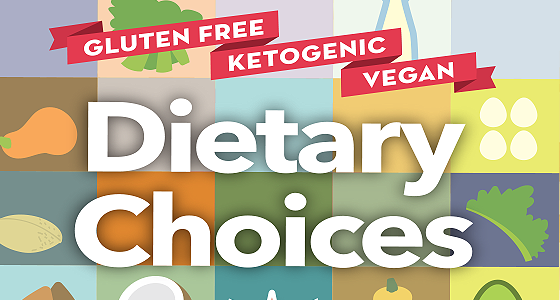
Healthy fats, also known as unsaturated fats, include monounsaturated fats and polyunsaturated fats. They are primarily found in plant-based foods and fatty fish. Here are some sources of healthy fats:
nullFor additional details, consider exploring the related content available here Choosing Healthy Fats – HelpGuide.org

Avocado is rich in monounsaturated fats, particularly oleic acid, which is associated with heart health.
Avocado, often hailed as a nutritional powerhouse, indeed stands out for its remarkable content of monounsaturated fats, particularly oleic acid. This unique composition not only contributes to its creamy texture and delightful flavor but also brings a host of health benefits, especially for the heart:
Heart-Healthy Fats: Avocado’s high monounsaturated fat content, primarily oleic acid, is celebrated for its heart-healthy properties. This type of fat can help reduce levels of LDL cholesterol (the “bad” cholesterol) while maintaining or even increasing levels of HDL cholesterol (the “good” cholesterol). This balance is essential for cardiovascular well-being.
Blood Pressure Regulation: Oleic acid, found abundantly in avocados, may contribute to the regulation of blood pressure. It helps relax blood vessels, potentially reducing the risk of hypertension, a significant risk factor for heart disease.
Inflammation Control: Chronic inflammation plays a pivotal role in the development of heart disease. Avocado’s oleic acid content, along with its other phytonutrients and antioxidants, may help mitigate inflammation, thereby promoting overall heart health.
Improved Lipid Profile: Consuming avocados regularly has been linked to favorable changes in lipid profiles, including reduced triglyceride levels. Such improvements in blood lipid parameters can reduce the risk of atherosclerosis and related cardiovascular issues.
Potassium-Packed: Avocados are an excellent source of potassium, a mineral essential for maintaining a healthy heart rhythm and blood pressure. Adequate potassium intake supports proper heart function and can counterbalance the negative effects of sodium in the diet.
Antioxidant Protection: Beyond oleic acid, avocados contain various antioxidants, such as vitamin E and carotenoids like lutein and zeaxanthin. These compounds help protect cells from oxidative stress and reduce the risk of heart disease by preventing the oxidation of LDL cholesterol.
Weight Management: While high in calories, avocados’ healthy fats and fiber content can contribute to a feeling of fullness and satisfaction, potentially reducing overall calorie consumption. Maintaining a healthy weight is a key factor in preventing heart disease.
Versatile Culinary Use: Avocado’s versatility in the kitchen makes it an accessible and enjoyable addition to various meals. Whether mashed into guacamole, spread on whole-grain toast, or added to salads, it’s an easy and delicious way to incorporate heart-healthy monounsaturated fats into your diet.
In summary, avocados’ rich monounsaturated fat content, primarily oleic acid, underscores their significance in promoting heart health. Including avocados in your diet not only enhances the flavor and texture of your meals but also supports your cardiovascular well-being, making them a valuable addition to any heart-conscious diet.
Should you desire more in-depth information, it’s available for your perusal on this page: The truth about fats: the good, the bad, and the in-between – Harvard …
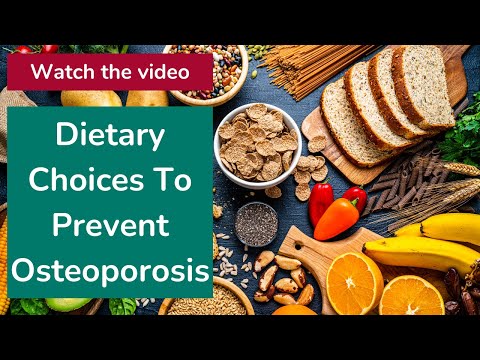
Salmon, mackerel, trout, and sardines are abundant in omega-3 fatty acids, which are known for their anti-inflammatory properties.
Salmon, mackerel, trout, and sardines are not only delectable choices for seafood enthusiasts but also pack a powerful punch when it comes to health benefits. These fish are abundant in omega-3 fatty acids, which are known for their remarkable anti-inflammatory properties. But the advantages of incorporating these omega-3-rich fish into your diet go well beyond that.
Omega-3 fatty acids, specifically eicosapentaenoic acid (EPA) and docosahexaenoic acid (DHA), are recognized for their role in reducing inflammation, thereby potentially lowering the risk of chronic diseases such as heart disease, arthritis, and even certain types of cancer. These essential fats have been shown to balance the body’s inflammatory response, helping to quell the flames of chronic inflammation, which is often considered the root cause of many ailments.
Beyond their anti-inflammatory prowess, these fish offer a plethora of other health benefits. For instance, they are fantastic for brain health and cognitive function. DHA, in particular, is a key structural component of the brain, making it crucial for cognitive development and maintenance throughout life. Regular consumption of omega-3-rich fish has been linked to improved memory, focus, and a reduced risk of neurodegenerative conditions like Alzheimer’s disease.
Moreover, these fish are heart-healthy champions. Omega-3s have been shown to lower blood pressure, reduce triglyceride levels, and improve overall cardiovascular health. Regular consumption can decrease the risk of heart disease by decreasing the formation of blood clots and stabilizing irregular heart rhythms.
But the benefits don’t stop there. Omega-3 fatty acids are also associated with better eye health, as they contribute to the maintenance of optimal vision and may help prevent age-related macular degeneration.
Incorporating these fish into your diet isn’t just about the health advantages, though. Their rich and distinctive flavors make them an exciting addition to your culinary repertoire. Whether grilled, baked, smoked, or even raw in sushi, these fish offer a wide range of delicious preparation options that can satisfy any palate.
In conclusion, salmon, mackerel, trout, and sardines are not just tasty seafood choices; they are nutritional powerhouses that offer a plethora of health benefits beyond their well-known anti-inflammatory properties. From brain health to heart health, these omega-3-rich fish can be a delectable and beneficial addition to your diet, providing you with both culinary enjoyment and a boost in overall well-being.
For additional details, consider exploring the related content available here The truth about fats: the good, the bad, and the in-between – Harvard …

Almonds, walnuts, flaxseeds, and chia seeds are excellent sources of healthy fats, fiber, and various vitamins and minerals.
Almonds, walnuts, flaxseeds, and chia seeds are like nature’s treasure trove of nutrients, offering a plethora of benefits for your overall health and well-being. These humble yet powerful foods can transform your diet in numerous ways:
Heart Health: These seeds and nuts are rich in monounsaturated and polyunsaturated fats, which have been shown to reduce the risk of heart disease. They lower bad cholesterol levels and help maintain healthy blood pressure.
Brain Power: Omega-3 fatty acids, found in flaxseeds and walnuts, are essential for brain health. They support cognitive function and may even play a role in preventing neurodegenerative diseases like Alzheimer’s.
Digestive Health: The fiber content in flaxseeds and chia seeds promotes digestive regularity, prevents constipation, and supports a healthy gut microbiome. They can also help with weight management by promoting a feeling of fullness.
Nutrient Boost: These seeds and nuts are packed with essential vitamins and minerals. For example, almonds are a great source of vitamin E, while walnuts provide a good dose of copper. Chia seeds are rich in calcium, and flaxseeds are abundant in manganese.
Antioxidant Power: Walnuts, in particular, are known for their high levels of antioxidants, which help protect your cells from oxidative damage. This can reduce the risk of chronic diseases and slow down the aging process.
Blood Sugar Control: Incorporating these seeds and nuts into your diet can help stabilize blood sugar levels, making them a valuable addition for those with diabetes or those looking to prevent it.
Weight Management: Despite their calorie density, the healthy fats and fiber in these foods can aid in weight management. They provide satiety, reducing overall calorie intake.
Versatility: These ingredients are incredibly versatile in the kitchen. You can sprinkle flaxseeds or chia seeds on yogurt or oatmeal, add chopped almonds or walnuts to your salad, or even blend them into smoothies for a nutrient boost.
Skin and Hair Health: The vitamins and minerals in these seeds and nuts promote healthy skin and hair. Omega-3s, in particular, help keep your skin moisturized and may alleviate certain skin conditions.
Plant-Based Nutrition: For those following a vegetarian or vegan diet, these foods can be essential sources of essential nutrients that might be lacking, such as omega-3 fatty acids and certain minerals.
Incorporating almonds, walnuts, flaxseeds, and chia seeds into your daily diet can be a delicious and convenient way to reap the incredible health benefits they offer. Whether you’re looking to boost your heart health, improve your cognitive function, or simply enhance the overall quality of your diet, these natural wonders can play a vital role in your journey towards a healthier lifestyle.
Explore this link for a more extensive examination of the topic: Choosing Healthy Fats – HelpGuide.org

Extra virgin olive oil is a staple of the Mediterranean diet and contains heart-healthy monounsaturated fats.
nullLooking for more insights? You’ll find them right here in our extended coverage: Choosing Healthy Fats – HelpGuide.org

Unhealthy fats, also known as saturated fats and trans fats, have been linked to various health issues, including heart disease and obesity. Sources of unhealthy fats include:
Unhealthy fats, also known as saturated fats and trans fats, have been linked to various health issues, including heart disease and obesity. These fats are a major concern in modern diets due to their adverse effects on our well-being. It’s crucial to be aware of the sources of unhealthy fats to make informed dietary choices that promote better health.
Some primary sources of unhealthy fats include:
Animal Products: Saturated fats are often found in animal-derived foods like fatty cuts of meat, poultry with skin, full-fat dairy products (butter, whole milk, cheese), and even some seafood like shrimp. These fats can contribute to elevated levels of LDL cholesterol, which is a risk factor for heart disease.
Processed Foods: Many processed and convenience foods contain unhealthy trans fats. These are typically found in items like baked goods (cakes, cookies, pies), fried fast food, and some margarines and shortening. Trans fats are formed during a process called hydrogenation, which turns liquid oils into solid fats. They are especially harmful as they not only raise LDL cholesterol but also lower HDL (good) cholesterol levels.
Partially Hydrogenated Oils: As mentioned earlier, partially hydrogenated oils are a key source of trans fats. Food manufacturers have used them for their stability and longer shelf life. However, due to their detrimental health effects, many countries have imposed restrictions on their use in processed foods.
Palm Oil and Coconut Oil: While these tropical oils are not trans fats, they are high in saturated fats. They are commonly used in processed snacks, baked goods, and some fried foods. Moderation is advised when consuming products containing these oils.
Fast Food: Fast food establishments often use unhealthy fats for frying and cooking. Regular consumption of these foods can significantly increase your intake of saturated and trans fats.
Snack Foods: Chips, crackers, and other snack foods often contain unhealthy fats, both in terms of saturated fats and trans fats. Always check food labels to identify the type and amount of fats present.
Understanding where these unhealthy fats come from is the first step toward making healthier dietary choices. Opting for a diet rich in unsaturated fats (found in sources like nuts, seeds, avocados, and fatty fish) while minimizing your intake of saturated and trans fats can go a long way in reducing the risk of heart disease and obesity, promoting overall well-being and longevity.
For a comprehensive look at this subject, we invite you to read more on this dedicated page: A healthy approach to dietary fats: understanding the science and …

Fatty cuts of meat, poultry with skin, and full-fat dairy products contain saturated fats.
“Fatty cuts of meat, poultry with skin, and full-fat dairy products contain saturated fats, which have long been associated with an increased risk of heart disease and other cardiovascular issues. The reason behind this concern lies in the way saturated fats can affect cholesterol levels in the bloodstream.
When you consume foods rich in saturated fats, your liver processes them by producing more low-density lipoprotein (LDL) cholesterol, often referred to as ‘bad’ cholesterol. Elevated levels of LDL cholesterol can lead to the buildup of plaque in the arteries, a condition known as atherosclerosis. This buildup narrows the arteries, restricting blood flow and increasing the risk of heart attacks and strokes.
Moreover, saturated fats can have inflammatory effects on the body, potentially contributing to chronic diseases beyond cardiovascular issues. Research suggests that a diet high in saturated fats may be linked to conditions like obesity, type 2 diabetes, and certain types of cancer.
To promote heart health and overall well-being, it’s advisable to limit the consumption of foods high in saturated fats. This includes opting for leaner cuts of meat, removing poultry skin, and choosing low-fat or fat-free dairy products whenever possible. By making these dietary adjustments and favoring sources of healthy fats, you can help reduce the risk factors associated with saturated fats and support a healthier lifestyle.”
Looking for more insights? You’ll find them right here in our extended coverage: A healthy approach to dietary fats: understanding the science and …

Many packaged and fast foods are high in trans fats, which are artificially created during food processing.
Many packaged and fast foods have become staples in modern diets, offering convenience and quick meal options. However, it’s essential to be aware of their composition, particularly the presence of trans fats. These trans fats are not naturally occurring in the ingredients but are artificially created during the food processing stage. Understanding the implications of these artificial trans fats can significantly impact your dietary choices and overall health.
Trans fats, also known as trans fatty acids, are created through a process called hydrogenation, where liquid vegetable oils are turned into solid fats. This process is commonly used in the food industry to enhance the shelf life and stability of products. While it achieves this goal effectively, it also generates fats with detrimental health effects.
One of the primary concerns associated with trans fats is their impact on heart health. Consuming trans fats has been linked to an increased risk of heart disease by raising levels of LDL (bad) cholesterol in the bloodstream while simultaneously lowering HDL (good) cholesterol. Elevated levels of LDL cholesterol are a significant risk factor for the development of atherosclerosis, which can lead to heart attacks and strokes.
Moreover, trans fats are often found in foods that are already considered less healthy options, such as fried fast foods, packaged snacks, and baked goods. Their consumption can contribute to weight gain and obesity, further compounding health issues.
In recognition of the potential harm caused by trans fats, many health authorities and governments have taken steps to limit or eliminate their presence in foods. This includes regulations mandating the labeling of trans fats on nutrition labels, as well as efforts to reduce or eliminate them from commercial food production.
To protect your health, it’s advisable to scrutinize food labels for any mention of trans fats and opt for healthier alternatives that use unsaturated fats or oils. By being mindful of the presence of artificial trans fats in your diet, you can take significant steps toward promoting your cardiovascular health and overall well-being.
If you’d like to dive deeper into this subject, there’s more to discover on this page: The truth about fats: the good, the bad, and the in-between – Harvard …

Now that we’ve distinguished between healthy and unhealthy fats, here are some tips for making better dietary choices:
nullLooking for more insights? You’ll find them right here in our extended coverage: A healthy approach to dietary fats: understanding the science and …

Check food labels for saturated and trans fats. Opt for products with lower saturated and trans fat content.
Checking food labels for saturated and trans fats is a prudent step towards making healthier dietary choices. These two types of fats have long been associated with an increased risk of heart disease and other health issues. To better safeguard your well-being, it’s crucial to not only read food labels but also understand their implications and actively choose products with lower levels of these harmful fats.
Saturated fats, often found in animal-based foods like red meat, butter, and full-fat dairy products, can raise your LDL cholesterol levels, often referred to as “bad” cholesterol. Elevated LDL cholesterol is a well-established risk factor for cardiovascular diseases. Therefore, when scanning food labels, be on the lookout for products that boast lower saturated fat content. Opting for leaner cuts of meat, choosing reduced-fat dairy options, and selecting cooking oils with unsaturated fats can be steps in the right direction.
Trans fats, on the other hand, are primarily found in partially hydrogenated oils and some processed foods. These fats not only raise LDL cholesterol but also lower HDL cholesterol, known as “good” cholesterol, which plays a protective role in heart health. The dangers of trans fats have prompted many countries to ban or restrict their use in food production. When examining food labels, ensure that the products you choose have minimal or zero trans fat content. This often means steering clear of certain fried and packaged foods, as well as baked goods that may contain hydrogenated oils.
By diligently checking labels for saturated and trans fats, you empower yourself to make informed decisions about the foods you consume. It’s not just about avoiding the obvious sources of these fats; it’s also about being mindful of hidden sources, such as in some packaged snacks, frozen foods, and even certain restaurant dishes.
Incorporating this practice into your grocery shopping routine and meal planning can significantly contribute to a heart-healthy diet. Over time, as you make choices that prioritize lower saturated and trans fat content, you’ll not only reduce your risk of heart disease but also set the stage for better overall health and well-being. Remember, a little vigilance in reading labels can go a long way in safeguarding your long-term health.
To expand your knowledge on this subject, make sure to read on at this location: How to Understand and Use the Nutrition Facts Label | FDA
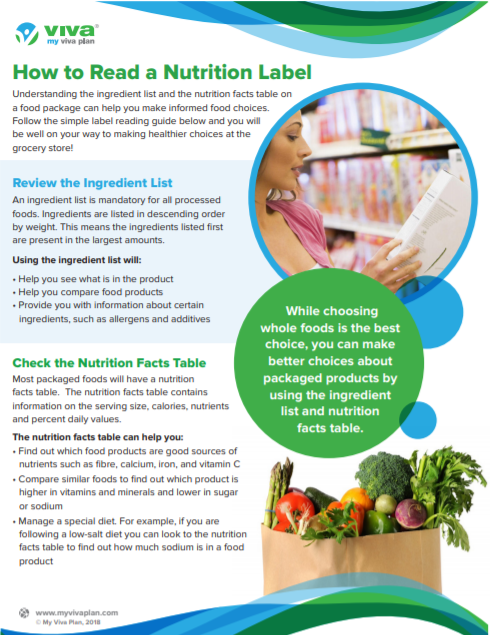
Use healthy oils like olive oil, canola oil, or avocado oil for cooking instead of saturated fats like butter or lard.
Using healthy oils like olive oil, canola oil, or avocado oil for cooking instead of saturated fats like butter or lard is a simple yet transformative step toward improving your overall well-being. Here’s why making this switch matters:
Heart Health: Healthy oils are rich in monounsaturated and polyunsaturated fats, which have been shown to support heart health by reducing bad cholesterol levels. By opting for these oils, you can actively lower your risk of heart disease and related complications.
Weight Management: Healthy oils can be a valuable ally in weight management. They are lower in calories than saturated fats, helping you control your calorie intake. Plus, they can contribute to a feeling of fullness, making it easier to stick to a balanced diet.
Inflammation Reduction: Olive oil, in particular, is known for its anti-inflammatory properties. Chronic inflammation is linked to various health issues, including cardiovascular disease and certain types of cancer. Incorporating olive oil into your cooking can help mitigate this risk.
Improved Insulin Sensitivity: Some healthy oils, such as extra virgin olive oil, have been associated with improved insulin sensitivity. This can be especially beneficial for individuals at risk of or dealing with type 2 diabetes.
Rich in Antioxidants: Healthy oils are often packed with antioxidants that can help combat oxidative stress in the body. These antioxidants contribute to your overall well-being and may even have anti-aging effects.
Versatile Flavor: Healthy oils bring a delightful range of flavors to your dishes. From the fruity notes of extra virgin olive oil to the mild, neutral taste of canola oil, you can experiment with various flavors to enhance your culinary creations.
Cooking Versatility: These oils have high smoke points, making them suitable for various cooking methods, including sautéing, roasting, and even frying. They maintain their nutritional value even at higher temperatures, unlike some other cooking fats.
Nutrient Absorption: Some vitamins and nutrients, like vitamins A, D, E, and K, are fat-soluble, meaning they require dietary fat for absorption. Healthy oils can aid in the absorption of these essential nutrients, ensuring your body gets the full benefit from your meals.
By making the switch to healthier cooking oils, you not only elevate the nutritional value of your meals but also take a significant step toward safeguarding your long-term health. It’s a small change that can yield big rewards for your well-being, making every meal not only delicious but also a positive investment in your health.
Explore this link for a more extensive examination of the topic: Dietary fat: Know which to choose – Mayo Clinic

Select lean cuts of meat and trim visible fat. Consider plant-based protein sources like beans and legumes.
When it comes to making healthier choices in your diet, opting for lean cuts of meat and being mindful of visible fat content is a great start. These choices not only reduce your calorie intake but also minimize the consumption of saturated fats, which can be detrimental to heart health. By selecting lean meats, you ensure that you’re getting the protein your body needs without unnecessary fat.
However, it’s essential to broaden your perspective on protein sources beyond just animal products. Plant-based protein sources, such as beans and legumes, can offer numerous benefits to your overall health. They are not only lower in saturated fat but also rich in dietary fiber, vitamins, and minerals. This makes them an excellent choice for maintaining a balanced diet.
Beans and legumes are incredibly versatile and can be incorporated into a wide range of dishes, from salads to soups and stews. They provide a sustainable source of energy and help you stay full for longer periods, which can be especially beneficial if you’re looking to manage your weight. Moreover, they are environmentally friendly and sustainable choices, contributing to a more eco-conscious diet.
So, while selecting lean meats is a good practice, don’t forget to embrace the delicious world of plant-based proteins as well. Combining both options in your diet can provide a well-rounded and nutritious foundation for a healthy lifestyle, ensuring you get the protein you need while supporting your long-term health and sustainability goals.
Don’t stop here; you can continue your exploration by following this link for more details: Dietary fat: Know which to choose – Mayo Clinic
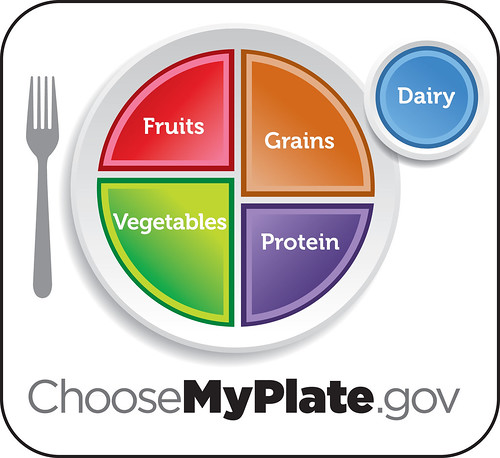
Incorporate fatty fish into your diet regularly to benefit from omega-3 fatty acids.
nullTo expand your knowledge on this subject, make sure to read on at this location: Dietary fat: Know which to choose – Mayo Clinic

Minimize consumption of processed and fried foods, as they often contain unhealthy fats.
Reducing your intake of processed and fried foods is a pivotal step in promoting your overall health and well-being. These types of foods are frequently laden with unhealthy fats, which can have detrimental effects on your body. Here’s why minimizing their consumption is such a wise choice:
Trans Fat Awareness: Processed and fried foods are notorious for containing trans fats, a type of unhealthy fat linked to numerous health problems, including heart disease. These artificial fats are created during food processing and are known to raise bad cholesterol levels while lowering good cholesterol, making them a significant risk factor for cardiovascular issues.
Excess Calories: Processed and fried foods are often calorie-dense, meaning they pack a substantial number of calories into small servings. Regular consumption can lead to weight gain and obesity, increasing the risk of various chronic conditions like diabetes, hypertension, and joint problems.
Low Nutritional Value: These foods are typically low in essential nutrients such as vitamins, minerals, and dietary fiber. When they become a significant part of your diet, they can displace healthier options, depriving your body of the nutrition it needs to thrive.
Inflammatory Response: Unhealthy fats found in processed and fried foods can trigger inflammation in the body. Chronic inflammation is linked to a range of health issues, including autoimmune diseases, digestive problems, and even mental health concerns.
Digestive Discomfort: Many fried and processed foods are high in unhealthy fats and low in dietary fiber. This combination can lead to digestive discomfort, including constipation and indigestion, making it harder for your body to process and eliminate waste.
Blood Sugar Spikes: Processed foods often contain refined carbohydrates and sugars that can cause rapid spikes in blood sugar levels, followed by crashes. This can lead to feelings of fatigue, irritability, and increased cravings for unhealthy snacks, perpetuating a cycle of poor eating habits.
Long-Term Health: The cumulative effects of regularly consuming processed and fried foods can have a long-term impact on your health, increasing the risk of chronic diseases such as type 2 diabetes, certain cancers, and cognitive decline.
To improve your health and well-being, consider replacing processed and fried foods with whole, unprocessed alternatives. Incorporate fresh fruits, vegetables, lean proteins, and whole grains into your diet. These choices not only provide essential nutrients but also support a healthier lifestyle that can reduce the risk of chronic diseases and enhance your overall quality of life. Remember, moderation is key, and small changes in your dietary habits can lead to significant improvements in your health over time.
To expand your knowledge on this subject, make sure to read on at this location: Healthy diet

While healthy fats offer benefits, it’s essential to consume them in moderation. All fats are calorie-dense, and excessive consumption can lead to weight gain.
While healthy fats undeniably offer a plethora of benefits for our well-being, it’s crucial to emphasize the importance of moderation in their consumption. The adage “everything in moderation” holds especially true when it comes to fats. This is because, despite their many virtues, all fats are calorie-dense, and unchecked indulgence can indeed lead to weight gain and associated health issues.
Calories are units of energy, and fats are one of the most concentrated sources of energy available in our diets. A single gram of fat contains approximately nine calories, which is more than double the calories found in a gram of carbohydrates or protein. This concentrated energy can be advantageous in certain situations, providing a lasting source of fuel for our bodies. However, it can also pose a challenge when we exceed our daily energy needs.
When we consume more calories than our bodies require for daily activities and metabolic functions, the excess energy is stored as fat. Over time, this surplus can contribute to gradual weight gain. It’s important to note that weight gain, especially when it reaches unhealthy levels, can increase the risk of various chronic conditions, including heart disease, type 2 diabetes, and certain types of cancer.
Moderation, therefore, is the key to enjoying the benefits of healthy fats without compromising our overall health. This moderation involves being mindful of portion sizes and making conscious choices about the types and amounts of fats we include in our diets.
Here are a few practical tips to help incorporate healthy fats into your diet while maintaining moderation:
Portion Control: Be mindful of portion sizes when consuming foods rich in healthy fats. For example, while nuts and seeds are nutritious, it’s easy to overindulge, so measure out appropriate servings.
Balance Your Plate: Aim for a balanced diet that includes a variety of food groups. Incorporate healthy fats alongside other essential nutrients like carbohydrates, proteins, and a range of fruits and vegetables.
Cooking Methods: Use healthy fats like olive oil or avocado oil for cooking, but avoid excessive amounts. Consider alternatives like baking, grilling, or steaming to reduce the need for added fats in cooking.
Read Labels: When purchasing packaged foods, check the nutrition labels for information on the type and quantity of fats they contain. Opt for products with healthier fat profiles.
Mindful Eating: Pay attention to hunger cues and practice mindful eating. This can help you avoid unnecessary snacking or overeating, even when consuming healthy fats.
Consult a Dietitian: If you have specific dietary goals or health concerns, consider consulting a registered dietitian or nutritionist. They can provide personalized guidance on fat intake and overall dietary choices.
In summary, while healthy fats are a valuable component of a balanced diet, their calorie density means that moderation is key. By making conscious choices, practicing portion control, and maintaining a balanced overall diet, you can enjoy the benefits of healthy fats while safeguarding your weight and overall health.
If you’d like to dive deeper into this subject, there’s more to discover on this page: Cholesterol Diet: How Nutrition & Foods Impact Levels

Conclusion
Understanding the distinction between healthy and unhealthy fats is a pivotal step towards making better dietary choices. Incorporating sources of healthy fats into your diet while reducing your intake of unhealthy fats can promote heart health, support overall well-being, and contribute to a balanced and nutritious diet. By arming yourself with knowledge and adopting mindful eating habits, you can embark on a journey towards better health and nutrition.
The journey toward better health and nutrition is indeed a voyage worth embarking on, and it begins with understanding the critical distinction between healthy and unhealthy fats. This knowledge forms the foundation upon which you can build a dietary plan that nurtures your well-being and supports long-term health goals.
Incorporating sources of healthy fats into your diet is a wise and proactive choice. Healthy fats, such as those found in avocados, fatty fish like salmon and mackerel, nuts, seeds, and olive oil, offer a wealth of benefits. These fats are known to promote heart health by helping to lower levels of “bad” LDL cholesterol, reduce inflammation, and support the flexibility of blood vessels. Their presence in your meals can contribute to improved cardiovascular function and reduce the risk of heart disease.
Moreover, healthy fats play a pivotal role in nourishing your body on multiple fronts. They are essential for the absorption of fat-soluble vitamins, ensuring that your body can fully harness the benefits of these vital nutrients. Beyond this, healthy fats are satiating, helping to control appetite and prevent overeating, which can be particularly helpful for those striving to maintain a healthy weight.
However, it’s equally important to recognize the detrimental impact of unhealthy fats on your health. Trans fats and excessive saturated fats, often found in processed foods, fried items, and many commercial baked goods, are notorious for their role in elevating “bad” cholesterol levels and increasing the risk of heart disease. By diligently reducing your intake of these fats, you take a substantial step toward safeguarding your cardiovascular health.
Arming yourself with this knowledge is just the beginning. Adopting mindful eating habits is the next crucial phase of your journey. This involves not only making conscious choices about the fats you consume but also paying attention to portion sizes and overall dietary balance. Moderation is key, as even healthy fats can contribute to excess calorie consumption if consumed excessively.
Consider incorporating a variety of healthy fats into your daily meals, experimenting with different oils, nuts, and seeds to keep your diet exciting and nutritious. Be mindful of food labels, as they often reveal the presence of unhealthy fats hiding in seemingly innocuous products.
Ultimately, your dietary choices have a profound impact on your overall health and well-being. By understanding the nuances of fats and making informed decisions about what you consume, you empower yourself to take control of your health and embark on a journey toward a balanced and nutritious diet that can lead to a happier and healthier life.
For additional details, consider exploring the related content available here Choosing Healthy Fats – HelpGuide.org
More links
Should you desire more in-depth information, it’s available for your perusal on this page: The truth about fats: the good, the bad, and the in-between – Harvard …
